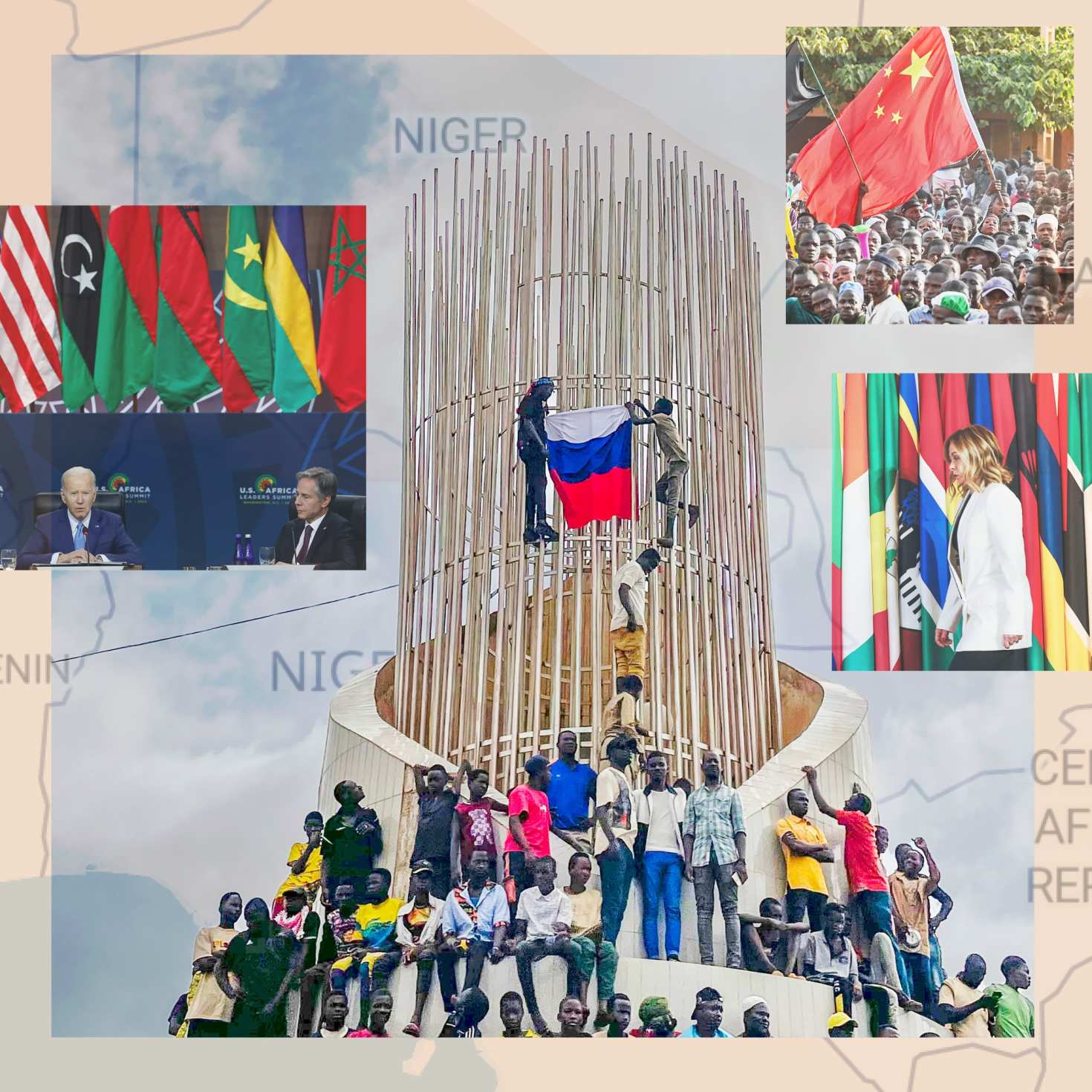Continent finds itself wooed by many, but few countries have yet devised a strategy to take full advantage
By David Pilling
Many of Africa’s leaders will descend on Beijing next month for the latest three-yearly summit with China. For leaders from the continent, these collective jamborees have become a familiar part of global summitry — and not just with China. In the past two years alone, the 54 African heads of state have been invited en masse to Washington for a US-Africa summit hosted by President Joe Biden, to St Petersburg for the second Russia-Africa summit with President Vladimir Putin, and to March’s Italy-Africa summit in Rome presided over by Prime Minister Giorgia Meloni.
African leaders have also had their choice of invitations to similar gatherings in Turkey, Saudi Arabia and, just this June, South Korea — the latest country to get in on the act of African summitry. Many will also fly off to Yokohama next year as Japan becomes a host, too.
Lazarus Chakwera, Malawi’s president, reflecting recently on the bonanza of diplomatic, security and trade opportunities open to African nations, told his hosts during a visit to London that, while it was “good to have a Chinese meal sometimes”, an all-you-can eat buffet was even better. China is certainly not the only option on the menu. Measured by dispersed loans, Chinese interest in Africa peaked in 2016 when sovereign lending was worth $28.4bn, according to figures compiled by Boston University, versus lending of about $1bn in 2022.
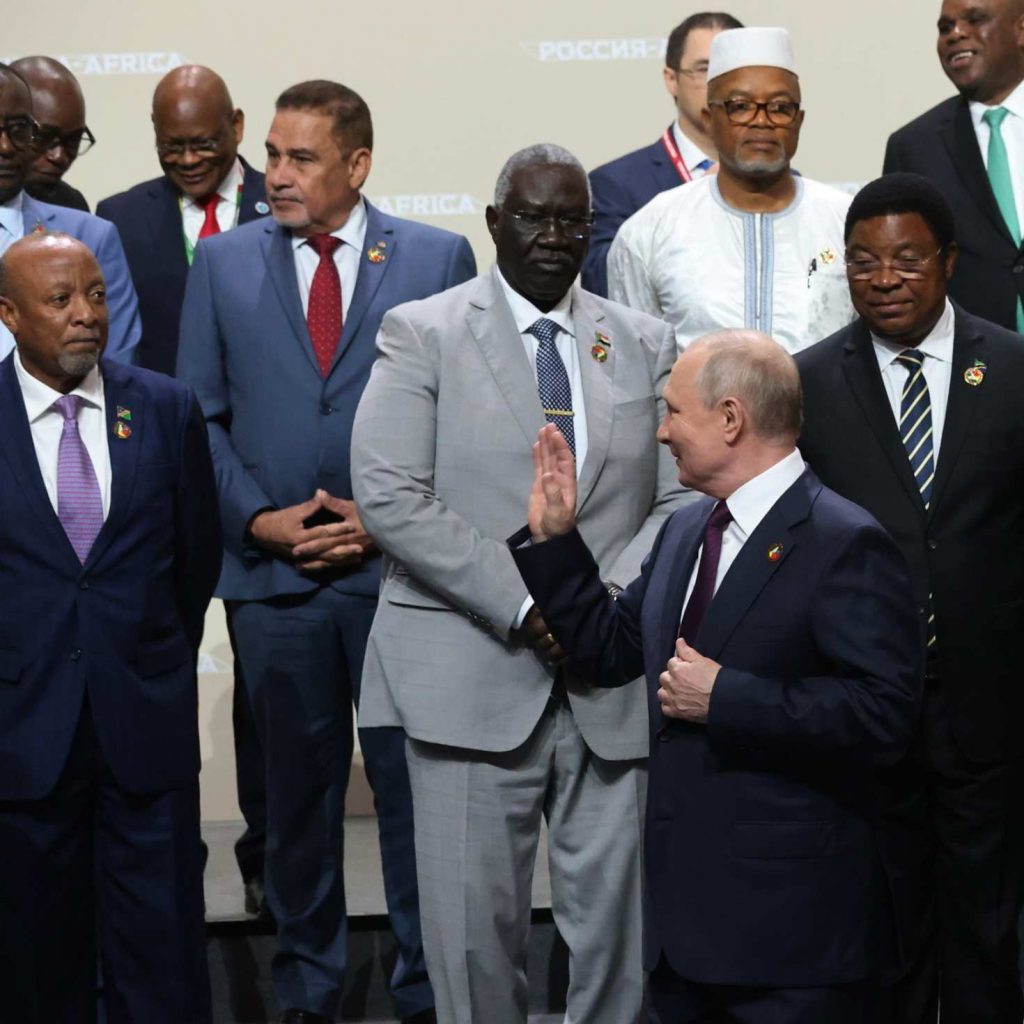
Clamour for Africa
But as attention from China has cooled, interest from several other nations, including Russia, India, the United Arab Emirates, Turkey and Brazil, has increased.
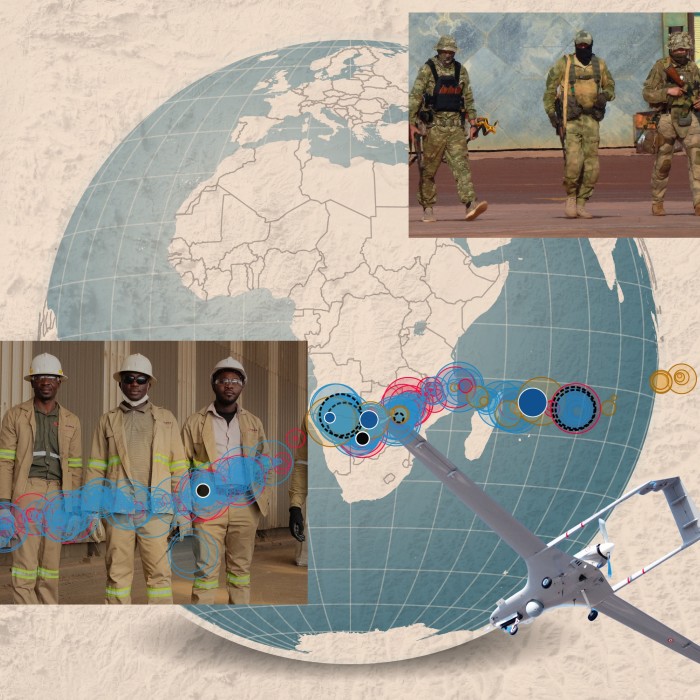
Part 1: The US-backed railway sparking a battle for African copper
Part 2: The foreign powers competing to win influence in Africa
Part 3: Turkey’s expanding leverage in Africa (coming Tuesday)
Africa is usually not at the top of the world’s diplomatic agenda, particularly at a time of conflict in the Middle East and Europe. But experts say many countries feel the need to develop or renew their “Africa strategy” because of the continent’s rapidly growing population, its high concentration of critical minerals and its 54 votes at the UN.
Chidi Odinkalu, a professor at Tufts University’s Fletcher School of Law and Diplomacy, said he was worried that rather than benefiting from having a seat at so many tables, Africa continues to find itself on the menu. He also wonders what it said about the continent that single countries deemed it acceptable to negotiate with the collective leaders of Africa at once.
In theory, what Odinkalu calls the new “diplomatic polycentricity” presents opportunities. “The question is: is Africa configured in any way to take advantage? The fact that the African side has not gone past primary production shows that very clearly is not,” he said.
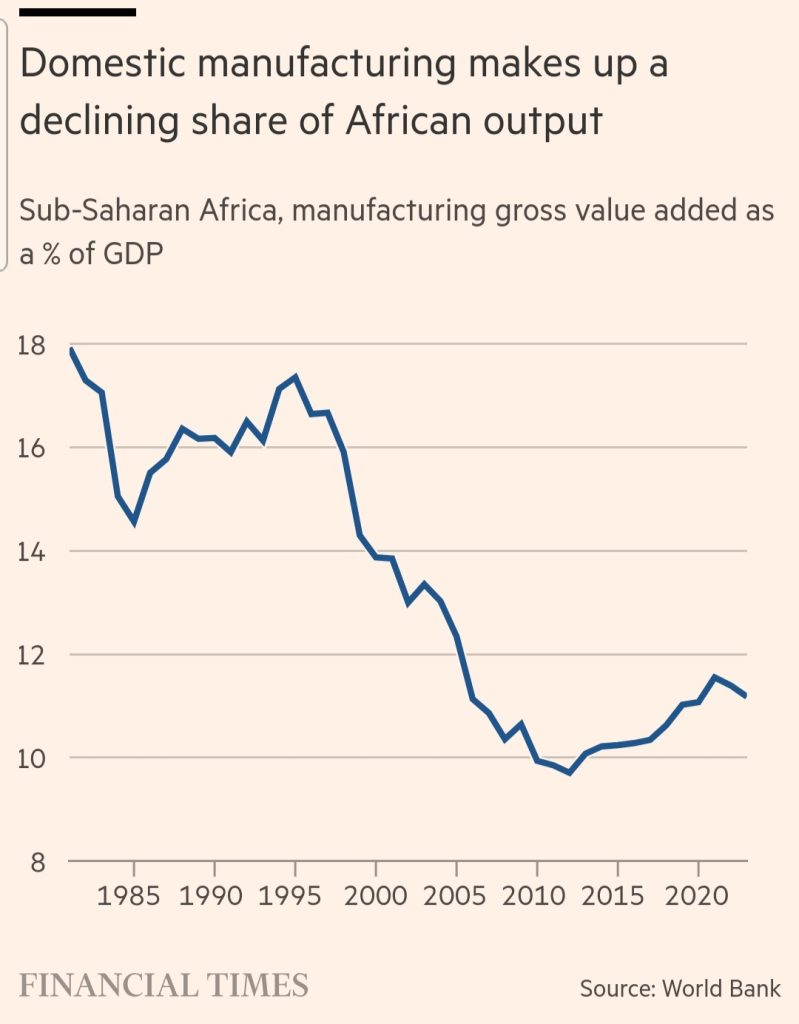
According to figures from the World Bank, despite all the interest from potential investors, manufacturing has declined as a percentage of gross domestic product in sub-Saharan Africa, falling from 18 per cent in 1981 to 11 per cent last year.
Most African countries remain locked in colonial-style trading relationships in which they export raw materials and import finished goods, Odinkalu said. “I think it’s a story of missed opportunities.”
While African countries may not have deepened their trading and investment relations, they have certainly broadened them.
India has become the third-biggest trading partner with the continent after the EU and China. Meanwhile, the UAE’s trade with Africa has increased nearly fivefold in the past 20 years — much of it gold and diamonds — to make the nation the continent’s fourth-biggest investor, with cumulated investments of nearly $60bn in the past decade.
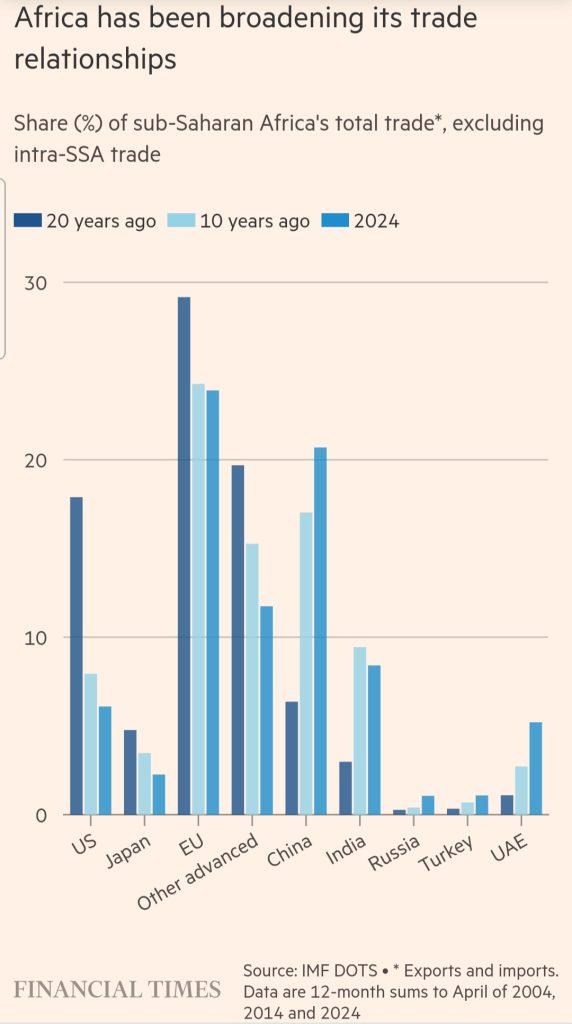
One of the risks of having so many options, said Kenyan political commentator Patrick Gathara, was that some African governments, including his own, have borrowed too much. Zambia, Ghana and Ethiopia have all defaulted and the IMF estimates that 25 African countries are at high risk of debt distress. Kenya’s efforts to meet its loan obligations by squeezing more tax from its people brought waves of mass protests on to the streets, forcing President William Ruto to backtrack.
Alex Vines, head of the Africa Programme at Chatham House, a UK think-tank, said African nations were trying to “better define” their national interests. Like Odinkalu, he worries that they do not always have the diplomatic or civil service bandwidth to take advantage.
Vines compared the strategy of being friends with many nations but the client of none with the stance taken by Djibouti, which has rented out its Red Sea coastline for the bases of several competing powers, including China, the US, France and Japan.
South Africa — a member of the Brics nations alongside Brazil, Russia, India and China, and now Egypt, Ethiopia, Iran and the UAE — has pursued a sometimes uncomfortable non-aligned policy that has seen it conduct naval operations with Russia and China while courting investments from the west.
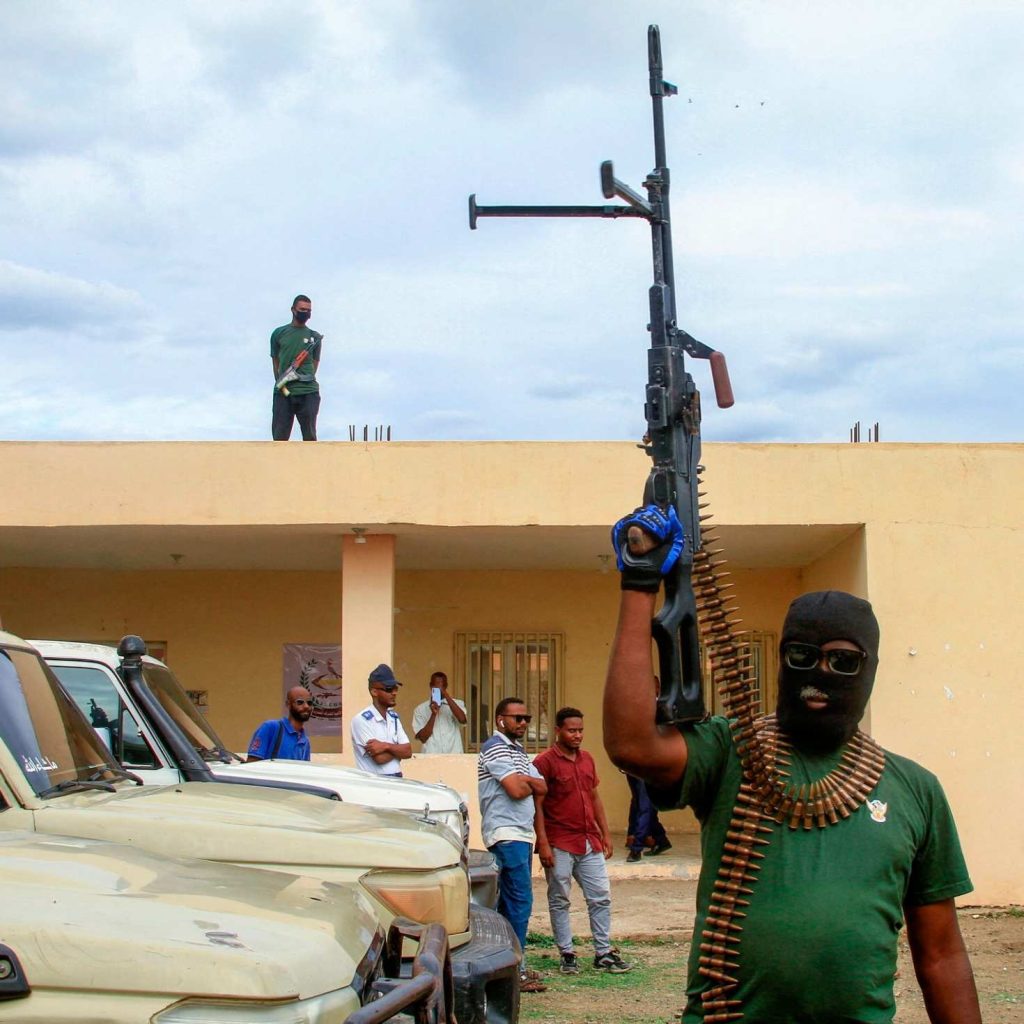
Ken Opalo, an associate professor at Washington’s Georgetown University, said too much interest in the continent by outside players was not always a good thing.
He cited as an example the war in Sudan, which erupted last year and dragged in “middle powers”, including the Gulf states and neighbours such as Egypt and Ethiopia. The UAE, in particular, is accused of stoking the conflict by backing the paramilitary Rapid Support Forces.
Opalo fears the war will result in “a Libyan stalemate”, a reference to another messy ending to a conflict that several foreign powers became embroiled in.
African countries with ties to Wagner have seen an increase in violence
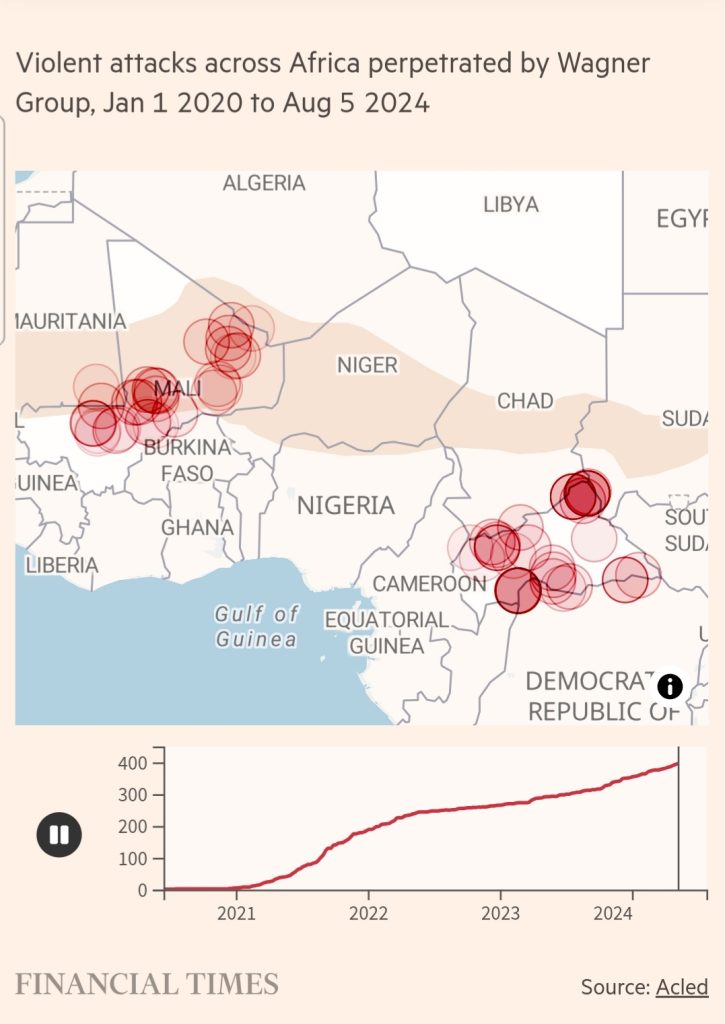
In Europe, despite the trade opportunities, Africa is often regarded as a potential source of instability, terror and migrants due to its population being forecast to reach 2.5bn by 2050, Isis and al-Qaeda affiliated insurgencies, and political uprisings.
Mali and Niger cut diplomatic ties with Ukraine this month amid an escalating dispute over whether Kyiv provided support to rebels that killed Malian soldiers and mercenaries linked to Russia’s private military group Wagner.
Coups in Mali, Niger and Burkina Faso have been followed by the juntas expelling French and US troops and forging closer ties with Russia and Wagner. In most cases, the shift has been accompanied by an increase in violence, according to Acled, an organisation that collects conflict data.
“A lot of African countries are trying to find a middle way through all of this,” said Vines. “And there lies the difficulty. There’s a lot of miscalculation.”
Data visualisation by Keith Fray and cartography by Steven Bernard
Credit| Financial Times

